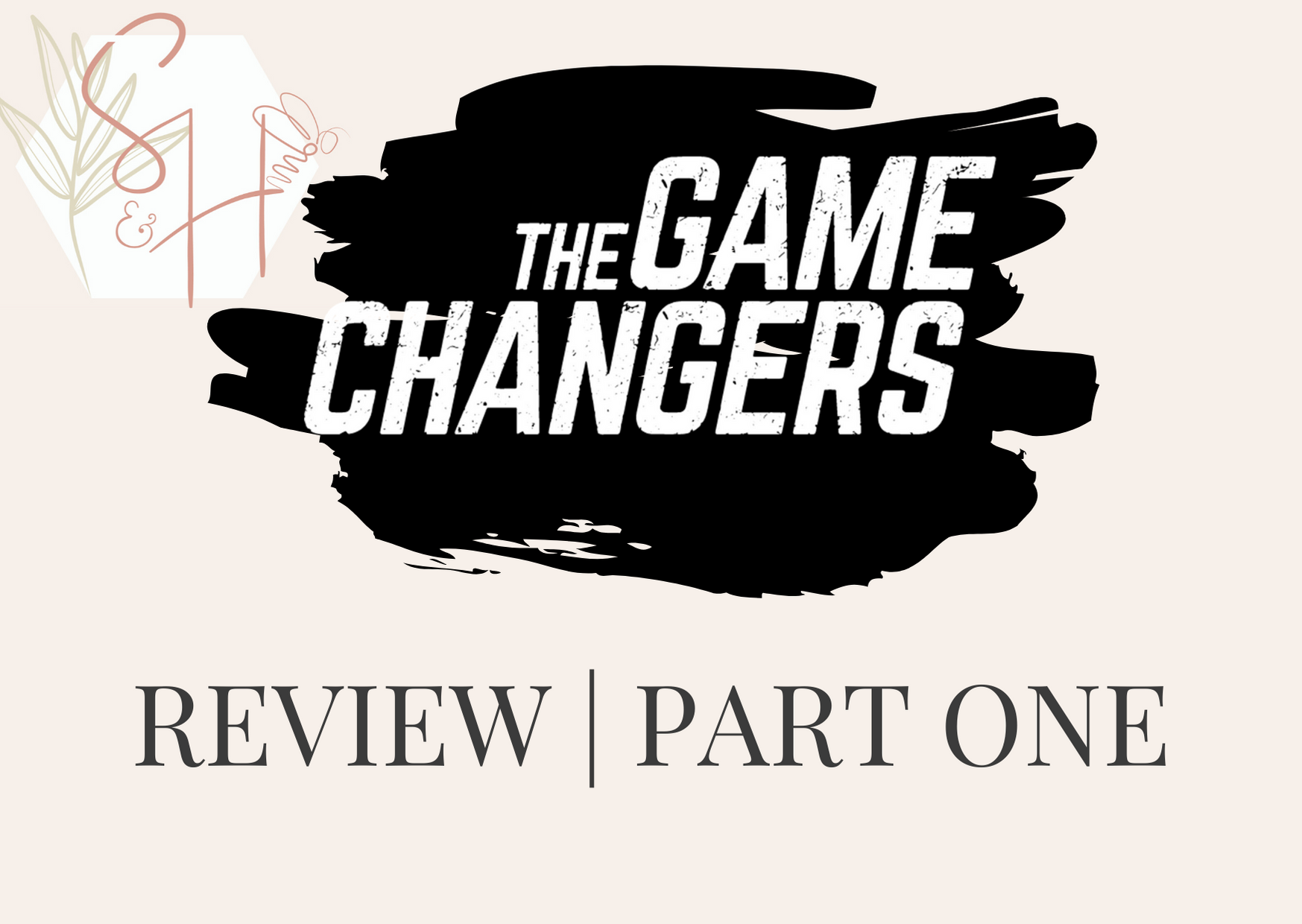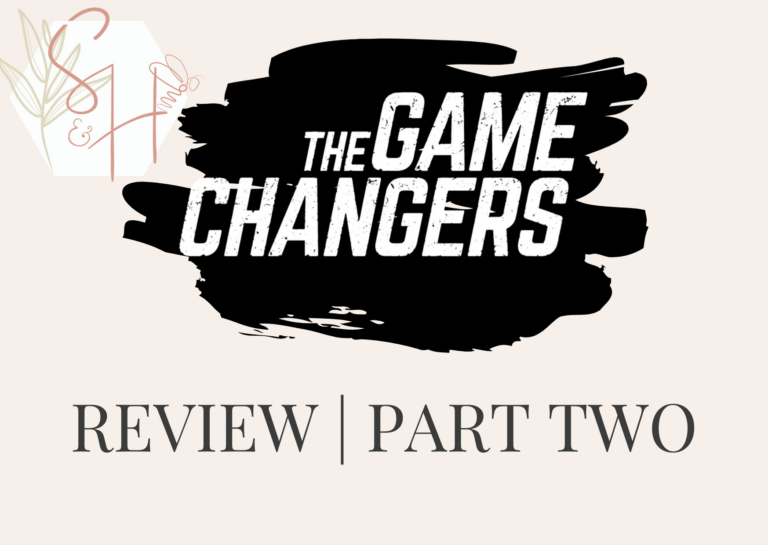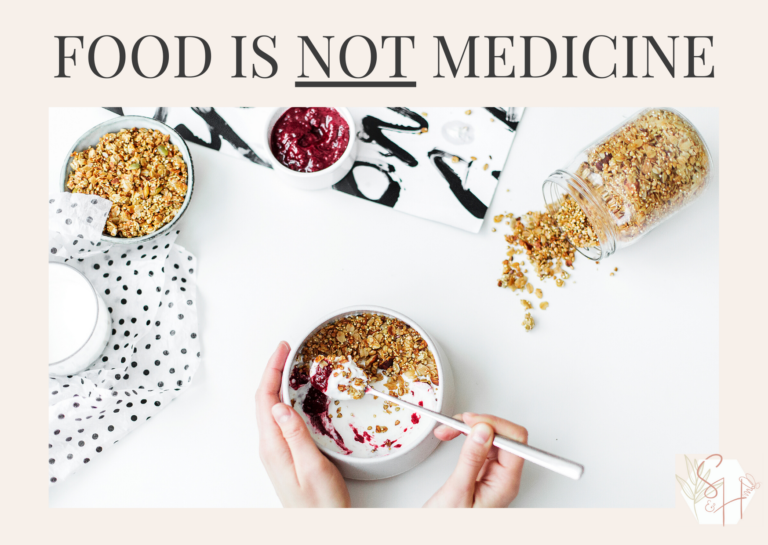Oh boy. I’m already taking this blog down a path I didn’t expect. A path that says this is no longer a feel-good fluffy-pancake-stacks-and-salads-in-mason-jars kind of blog; a path that definitely airs on the side of “controversial” (*buckles safety belt*). But you know what? I didn’t start this blog to just be white noise and delicious recipes (although delicious recipes you shall have). I started it primarily to add to the emerging community of voices saying “enough of the BS pseudoscience, cherry-picking and scaremongering; we want facts”.
It is so easy to buy into whatever the latest “health” documentary is trying to sell you. It’s exciting, it’s new, it makes us feel like we’re in on the world’s best-kept secret – we’re one of the few well-informed; and it’s an attractive place to be. But you know what’s not so sexy? Real science. Because here’s the real best-kept secret – nutritional science will never be black and white, it will never be dramatic, it will never have shock-factor. I know that “a balanced diet high in fruit and vegetables, healthy fats and lean protein” isn’t exciting. The most certain concepts within nutrition are the most basic ones that we have all heard time and time again – and people are bored. Enter, the latest Netflix documentary – a fresh wave of exciting “new” information that will totally transform your life. *And the crowd goes wild*.
Before I get into the nitty-gritty I will say this – I 100% back anyone who wishes to be vegan or vegetarian, whether it be for ethical, environmental or personal reasons. I also 100% back anyone who wishes to continue eating animal products in a healthy way. I personally love eating plant-based – it’s an excellent way to increase intake of fruit and veg, fibre, phytochemicals and antioxidants – but I’m not vegan. The consensus across the scientific community about having a predominantly plant-based diet is striking; I don’t think there is one health professional out there that would argue against it. So I am not here to argue against the power of plants (they’re incredible), nor am I here to say that veganism is in any way inadequate, as long as it is well-informed and properly planned (as all diets should be). Both the British Dietetic Association [1] and the American Academy of Nutrition & Dietetics’ [2] position statements on vegan diets are that when well-planned, they are healthy and appropriate for people of all ages and any stage of life, including pregnancy.
Do we over-rely on animal-based foods? Most definitely. Is the inclusion of animal foods inherently problematic for health or the environment? The evidence points to no, they aren’t. As a society we need to become more comfortable with finding plant-based alternatives, eating meals without meat from time to time and overall decreasing our absolute dependence on animals for food. It is the over-consumption (and resultant intensive farming) that can cause issues for our health, environment and animal welfare. Not the inclusion in and of itself. Likewise, the benefits of a vegan lifestyle are more reflective of what heavily included in the diet (wholegrains, fibre, fruit & veg), rather than what’s cut out. So that’s a key thing to keep in mind throughout the film; that “plant-based” and “vegan” are not necessarily the same thing.
Contrary to how it may seem, I actually didn’t hate this documentary. It was intriguing, well-structured and kept me interested. What’s surprised me is I actually disagree with the vast majority of other reviews I’ve read. Although the authors all claim, of course, that they are being totally objective, it’s not difficult to see their own bias creeping in. While I recognize that it’s pretty much impossible to completely abolish bias (I will have my own, try as I may to keep them far away from this review), what I did notice was the tendency to write counter-arguments to claims the documentary didn’t actually make. It’s as if the author was hearing things that they imagined the documentary might say, instead of what it actually did say. I think the issue with this particular documentary is that many sat down to watch the film they had already deemed a “vegan propaganda film” before even listening to what it had to say (not helped of course by the health documentaries that preceded it (Cowspiracy, What the Health, Fed Up etc) which are all scientific trainwrecks).
But my issue with documentaries such as this one is that converting people to a certain lifestyle based on misleading information or fear is completely immoral. Had this documentary been about educating about the pros of plant-based diets in their various forms, or about scrapping the narrative that we need meat in order to thrive as an individual or as an athlete (which I agree is completely false), I would have had no issues whatsoever. But that’s not where they went. Instead, they bulldozed right on ahead and made big claims about meat and dairy causing cancer, heart disease and general ill-health; claims that are not reflective of the scientific consensus. That is a very different argument to “plant-based and/or vegan diets are healthy”. And they were smart about it too. Perfectly scripted, nothing they said was “false” per-se, but a lot of it wasn’t presented in such a way to give the full picture. People are very black and white with nutrition and although the film-makers can argue otherwise, I believe it completely disingenuous to say they weren’t aware of that. And herein lies the issue.
It’s clear that a war on nutrition is raging, and it’s not slowing down any time soon. It’s vegans vs meat lovers and each side is equally as fierce, each side will insist they are backed by science; but instead of just sitting down and listening to each other we just shout our own views louder. It’s as if we have completely forgotten there’s a middle ground in there somewhere, buried beneath the rubble of confusion, pride and conflicts of interest.
One last warning, if you haven’t already clicked off – this is a long post. There was so much to unpack and while I tried to keep it to the point, I also wanted to delve deep. For those who are still interested, I decided to split it into three parts:
- Part One: General Comments & Critiques
- Part Two: Claims Relating to Athletic Performance (click here)
- Part Three: Claims Relating to General Health & Disease and Final Thoughts (click here).
Let’s begin.
A One-Sided Debate Is Easy Won
I can think of a million arguments that would be easy to win were the opposing view never voiced. Life would seem so black and white, wouldn’t it? We’ve all watched a court case that seems so clear cut until the other side presents the counter-argument. It would sure save a lot of time, money, and fretting over the “grey”. But wouldn’t that be so misleading? Wouldn’t that completely break the entire justice system? Wouldn’t that be so immoral?
This documentary missed an incredible and valuable opportunity – an opportunity that doesn’t come along all that often and is often only reserved for spaces such as this one; the public is listening. Instead of using it to inform and educate about the benefits of a plant-based diet and squash common misconceptions about plants vs animals, the creators of Game Changers used it to tell one side of a very complex story. They proceeded to use their voice to add to the confusion and misinformation, and to lead the viewer wherever they wanted them to go, instead of letting the viewer decide for themself.
Nutritional science is as complex as you can imagine, and there will always be multiple sides to the story. If you are making decisions about your health, make sure you know them.
Flashy Science Stuff
The documentary followed James Wilks, a former MMA fighter, who claims to have spent 1000 hours researching plant-based diets while out with injury. It definitely seems impressive, as do the images of scientific papers that flash across the screen throughout. But this is what most people don’t get about scientific research – to have any value, a study needs to be almost impeccably well-executed, adequately powered (i.e. large sample size to see effect) and must be verifiable and replicable. And even then, one study means nothing. So, until you throw all those studies into the gigantic pool of opposing studies, and until you know exactly what Wilks was reading during those supposed 1000 hours – this claim and these exciting bright images mean really very little. Granted, some references used were from valid, well-conducted studies. However, many had extremely small sample sizes and most were epidemiology studies.
Epidemiology
This is the study of diseases (specifically how, when and where they occur) to identify patterns and determinants of health and disease in defined populations of humans or animals.
These are based on observation, collecting data about a group of individuals’ lifestyle/environment and making associations between said lifestyle and health outcomes. They are designed to speculate which factors are associated with disease (risk factors), and which may be protective.
This is useful to identify trends (i.e. correlation) and inform further research. What they cannot do is prove causation because (i) correlation does not mean causation and (ii) it is impossible to unpick the many aspects of one’s lifestyle and pinpoint the specific part of it that is behind the observed outcome.
They also rely on dietary recall, which is subject to recall bias (under- or over-estimation, and intentional or unintentional omission of certain dietary habits).
So certainly not something to bet your life on.
I have no doubt Wilks is incredibly intelligent, but like all of us, I think he got swept up by the excitement and went a little (or a lot) overboard with the claims he makes about the scientific literature.
Another large proportion of “evidence” they heavily relied on was anecdotal. While I’m not entirely dismissing any form of anecdotal narrative, it’s not particularly strong evidence because then anything goes as long as you can find someone who claims they “felt better” on whatever diet (which you will always be able to do).
Where Have You Come From?
When talking about how a vegan diet (or any diet) has improved health, it’s always essential to also disclose what your diet was like before the switch. For example, someone who switches from eating a diet of fast-food, ready-meals and food of a low nutrient density is very likely to notice improvements when switching to a diet focusing on whole foods, legumes and fruit & vegetables. Whether someone would notice such a dramatic difference switching from a diet focusing on these same things, but including moderate amounts of dairy, fish & lean meat is a lot more questionable.
Many athletes featured in the documentary openly stated that they previously ate a lot of fast food and fried chicken, and not a lot of vegetables. But to understand whether an omnivorous diet is truly as unhealthy as the film makes out, we need to compare a 100% vegan diet to a healthy plant-based omnivorous diet, not the typical crappy Westernised diet. It is likely that certain attributes that are linked, but not exclusive, to vegan diets are behind any improvements in health (high fruit, veg, and fibre intake, low salt and saturated fat intake). Such attributes can be achieved too in a plant-based omnivorous diet.
Real Men Eat Meat Mentality
A common theme running through the documentary is, of course, debunking the “real men eat meat” mentality. The documentary discusses the utilization, and even strengthening, of this mindest by meat and fast food companies as a marketing tool. We’ve all seen the TV and poster advertisements – 7ft male, rippling muscles, good head of hair, unusually sweaty – you know the one – he’s holding a tight fist with one hand and a burger in the other, yelling sweet victory and/or is surrounded by half-naked women? While I’m aware this is all hyperbole for humor’s sake, a vein of truth runs through it; eating meat is a badge of masculinity.
How gender ideals influence food choice is a well-studied area of science and as a societal norm is something worth challenging [3][4][5]. What has been interesting to see over the past half-decade is that the ones most militantly against veganism tend to be male. Now, as I said – I’m not vegan, nor do I think being fully vegan is necessary if it’s not the right choice for you. But I think it does give some insight into the strength of the ties between meat, men, and their masculinity.
Where I think this documentary has a place is simply that – challenging this deeply ingrained mindset. It highlights that in reality, you don’t have to eat meat to be strong, athletic, or successful; that masculinity has nothing to do with the amount of meat you consume. Had the documentary stopped there, simply being happy with highlighting that hey, you can be vegan or you can eat meat – either way, these are the incredible things that are possible, then I think it could have been great. But alas, it had a more one-sided agenda.
Conflicts of Interest
Conflicts of interest are an easy way to make people question the integrity of a piece of research. In some cases this is justified and it’s always something I look into when analyzing a paper. However, a conflict of interest does not automatically mean a paper holds no value. It’s reasonable to expect that milk farmers, for example, would be partial to fund research looking into the health benefits of milk – the resultant well-conducted study is no less valuable regardless of where the money was sourced. However, if the findings were to be manipulated or presented in such a way to better fit the farmers’ agenda, then this would obviously de-value the paper.
Industry-funded studies are also under no obligation to be published – so if a paper was to show less than favourable findings, it may not be published. This is obviously a problem, but again it all comes back to how the paper fits into the rest of the research, including those not funded by industry, as well looking into the methodology. If these are both sound, there’s little reason to argue the paper isn’t valid. While non-industry papers are therefore needed, it’s also important to realize that the vast majority of papers are industry-funded; they have money to blow. This also means that they can afford more expensive scientific tools to carry out more robust studies than many of those that are not.
So while it’s an important consideration, it doesn’t automatically discredit scientific research. Nonetheless, scientific papers must disclose any potential conflict of interests (e.g. by an author/contributor to the paper or by source of funding). Wilks seems to have this thing where he just wants to throw out any study with opposing findings to his own agenda, solely based on the fact it’s industry-funded. I found it odd then that the film didn’t disclose any of their own conflicts of interest. Unsurprisingly, many contributors to the film (including ‘experts’) have businesses selling vegan products, sell vegan books, or in some way profit from veganism and most are vegan themselves.
Now, one could argue that these people have seen the benefits of a vegan lifestyle based on scientific research, subsequently changed their diet and therefore created businesses supporting a cause they very much believe in – the same genuine belief that made them want to create this documentary in order to raise awareness. To be totally honest, I would almost go as far as to say I kind of believe this could be true (call me naive). I will never know their intentions, but this is exactly why simply stating that there is a “conflict of interest” isn’t really a strong criticism by itself.
So, general comments aside, let’s move onto the claims made in the film.
Read Part Two (click here), where I delve deep into the claims made in the film relating to athletic performance.
Part Three (click here) will deal with the claims made about general health outcomes, and my closing thoughts.
References
- British Dietetic Association (2017) British Dietetic Association confirms well-planned vegan diets can support healthy living in people of all ages; Accessed Jan 2020
- American Academy of Nutrition & Dietetics (2016) Position of the Academy of Nutrition and Dietetics: vegetarian diets; Journal of the Academy of Nutrition & Dietetics; 116(1),1970-1980;
- Love HJ & Sulikowski D (2018) Of meat and men: sex differences in implicit and explicit attitudes toward meat. Frontiers In Psychology; 9(1), 559.
- Newcombe M, McCarthy M, Cronin J et al. (2012) “Eat like a man”. a social constructionist analysis of the role of food in men’s lives. Appetite; 59(1), 391-8.
- Ruby MB & Heine SJ (2011) Meat, morals, and masculinity. Appetite; 56(2), 447-450



